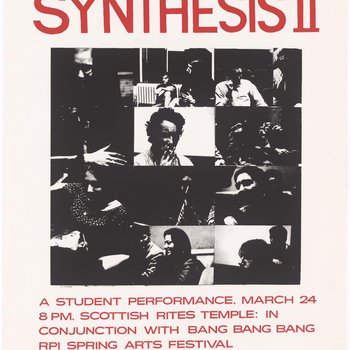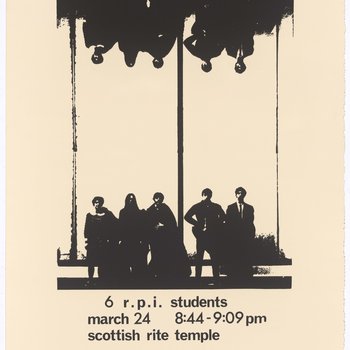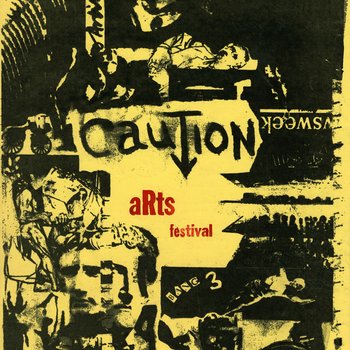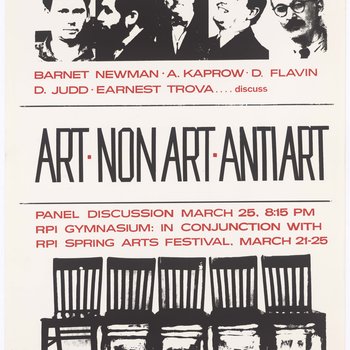Bang Arts Festival, 1964-1967
This section contains materials related to the third Bang Arts Festival, held at RPI from March 21-25, 1966. By far, the 1966 festival is the best documented of its iterations in the archive. By its third year, the Proscript stated Bang was “established as a major event in the national calendar of avant-garde arts festivals” (March 4, 1966). This national attention also caught the eye of RPI administration--the Administration for the Art Council requested to assume responsibility for the festival, receiving pushback from its planners, who believed Bang should remain under the Student Personnel Office since it was partly financed by the Student Activities Committee (March 11, 1966 edition of the Proscript).
The third Bang Arts Festival began with a performance of electronic music entitled “Variations VI” by John Cage and David Tudor. The following evening, a “Vue-Gram” performance entitled “Bird Park Lake” featured RPI faculty James Bumgardner, Jon Bowie, Richard Carlyon, William Livingston, Bernard Martin, and Willard Pilchard occurred. The next evenings were led by a dance performance by Judith Dunn, accompanied by musicians Bill Dixon and Alan Silva, and then the performance of “Synthesis II.” Following up on the previous year’s “Synthesis,” this student-centered performance had a cast of 60, using music, drama, dance, and audio-visual art for the 90-minute program entitled “At Least the Cut Grass Would Smell the Same.” (March 18, 1966 Proscript). Two one-act plays were performed the next night, and the final night featured a symposium panel titled “Art, Non-Art, Anti-Art” with artists Dan Flavin, Donald Judd, Allan Kaprow, Barnette Newman, and Ernest Trova.
Alongside newspaper articles, press releases, schedules, fliers, and promotional posters, this section contains a great number of memos and letters between RPI administrators, faculty, and visiting artists. These items give an insight into the planning process of the festival, including honorarium fees for artists, budgets for the festival, and demonstrations of how relationships between RPI faculty and nationally recognized artists grew through the planning process. Items related to individual performances follow their posters below.




